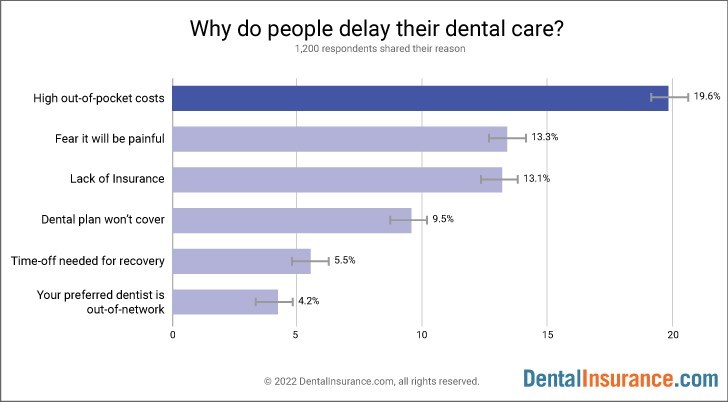While more than two-thirds of Americans have private medical insurance coverage, only half have dental care coverage.
Some people lack dental coverage because their medical plans don’t include it. Others don’t have it because they can’t afford it.
But while some people choose not to pay for dental insurance due to cost, they will often wind up spending considerably more paying out of pocket for dental care when they ultimately need it.
Not only is it important to receive regular dental care, but it’s also important to have dental insurance — and know how it works.
Why You Need Dental Coverage
Having dental insurance is vital for various reasons.
Oral health is crucial to your overall well-being, and regular dental check-ups can detect issues early, preventing costly treatments later.
Timely dental care is also connected to your overall health, as untreated oral issues can contribute to other health problems like diabetes, heart disease, stroke, arthritis, and immune conditions
Dental insurance encourages preventive care by covering routine check-ups, cleanings, and X-rays, providing timely intervention. It also helps reduce out-of-pocket expenses for unforeseen dental procedures.

How Your Coverage Works
Like medical insurance, dental insurance operates on a model where you (or your employer) pay premiums to a dental insurance provider in exchange for coverage of various procedures.
Dental plans typically cover preventive services like routine cleanings, check-ups, and X-rays at a higher percentage or completely in order to encourage regular treatment before problems develop.
Basic procedures such as fillings and extractions are often covered at a lower percentage, while major services like crowns or root canals may carry higher out-of-pocket costs.
Also like other types of insurance, dental plans often have deductibles, which is the amount you are required to pay before your dental plan starts covering costs. Plans also commonly feature annual maximums, which cap the amount the plan will pay within a calendar year. By using in-network dentists — with whom your provider has negotiated lower rates — you will often face lower out-of-pocket costs.
While claim procedures can vary from plan to plan, your dentist will typically submit a claim to the insurance company after you’ve received services. The insurer will then process the claim, determine the covered amount, and reimburse the insured or the dentist directly.
It’s important to note that some dental insurance plans have waiting periods before certain major services are covered, and that plans often don’t cover orthodontic procedures (such as braces), cosmetic dentistry or teeth whitening.
Be sure to be aware of any deductible amounts and waiting periods, especially if you’re planning specific dental procedures shortly after obtaining coverage.
Coverage Types
Dental insurance typically comes in three primary types: HMO, PPO, and indemnity plans.
Health Maintenance Organization (HMO) plans require you to choose a primary dentist, Preferred Provider Organization (PPO) plans offer more flexibility in selecting dentists, and indemnity plans provide the most freedom to choose any dentist.
There are also dental insurance alternatives, such as healthshares or health sharing ministries, which operate on a cooperative basis where members contribute to a shared pool, and funds are distributed to cover qualifying medical expenses, including dental care.
It should be noted that while healthshares often cost less than traditional dental insurance, they may not offer the same level of coverage or regulatory oversight. Carefully review the terms, limitations, and eligibility criteria to ensure they align with your specific healthcare needs and financial circumstances.
*Although dental insurance plans share similarities, each plan is unique. This article aims to offer insights into typical coverages within employer-based plans, but it may not encompass every scenario, as individual plans can vary. When searching for a new plan, prioritize finding one that aligns with your family’s specific needs.
For inquiries about your existing dental coverage, reach out to your insurance company.
Additionally, the team at Mint Dental is ready to assist you in identifying treatment options that align with your needs, coverage, and budget. Schedule a consultation at our office in downtown Chattanooga, TN today!



